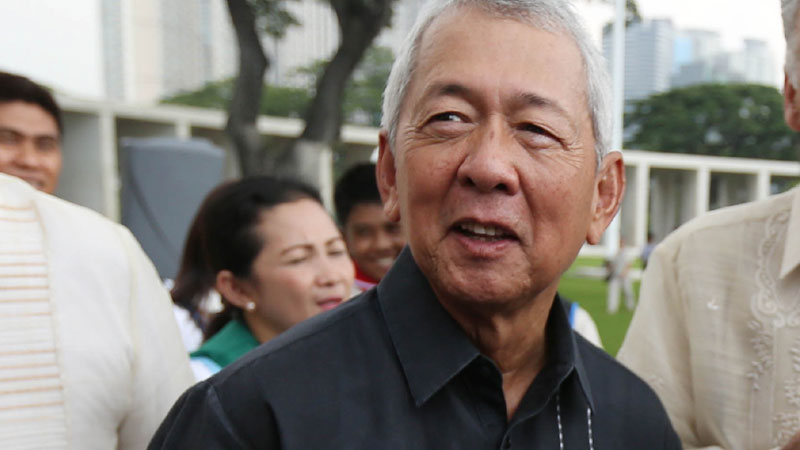Manila rejects Beijing condition for talks
THE PHILIPPINES has rejected China’s request for talks on their South China Sea dispute because it asked Manila to “disregard” a court ruling on the issue, Foreign Secretary Perfecto Yasay said on Tuesday.
“They asked us also to open ourselves for bilateral negotiations but outside of and in disregard of the arbitral ruling, so this is something that I told him was not consistent with our Constitution and our national interest,” Yasay said.
A UN-backed tribunal said last week there was no legal basis for China’s claims to most of the strategic, resource-rich waters, with Beijing staunchly denouncing the decision.
Yasay, interviewed by ABS-CBN broadcaster, said he and his Chinese counterpart, Wang Yi, discussed the possibility of bilateral talks on the sidelines of an Asia-Europe summit in Mongolia last weekend but made no headway.
The Hague-based Permanent Court of Arbitration ruled Beijing had violated the Philippines’ sovereign rights to exploit resources in waters up to 370 kilometers (200 nautical miles) beyond its coast, called its exclusive economic zone.
Article continues after this advertisementThe fish-rich Scarborough Shoal, which lies about 230 km from the Philippine coast, is a “traditional fishing ground” that should be open to Filipino, Chinese and other fishermen, the tribunal said.
Article continues after this advertisementDuterte’s top priority
President Duterte’s “first and foremost” priority was to regain access to the Scarborough Shoal for Filipino fishermen, Yasay said.
“We would like to discuss with you how your (Filipino) fishermen would have access in that area, but not in the context of the arbitral tribunal [decision],” he quoted Wang as telling him in Mongolia.
“They said, ‘If you will insist on the ruling, discussing along those lines, then we might be headed for a confrontation,’” the Philippine foreign secretary said in the interview.
He said direct talks with China over the maritime flash point were unlikely to start anytime soon due to Beijing’s refusal to accept the ruling.
“But I really honestly feel that this is something they have to make on a public basis, but I also sensed there was room for us to talk very quietly using backdoor channeling,” Yasay said.
‘Exercise restraint’
“Let’s do it one step at a time. Let’s manage it on that basis,” he said.
“We have asked China to exercise restraint and sobriety in this regard, that we maintain the status quo for now in terms of not taking aggressive actions … not coming out with any provocative statements,” he added.
The President said last week that he would send former President Fidel Ramos to China to start talks on the ruling. However, Yasay said he did not know if Ramos would accept and did not know when that mission could be dispatched.
“Let the dust settle some more and let’s see how we can open up the road for this kind of negotiation,” he said.
Beijing, which justifies its extensive claims by saying it was the first to have discovered, named and exploited the sea, has said the tribunal ruling cannot be the basis of any discussions.
China seized Scarborough Shoal in 2012 after a brief standoff with the Philippine Navy. Manila lodged suit at the tribunal the following year.
Role of contractor
In the long term, Yasay said the government had not ruled out the possibility of giving China a role as a contractor should the Philippines move to exploit the resources, including natural gas, in its exclusive economic zone.
The US Department of State told China to agree on a bilateral agreement with the Philippines following the arbitral tribunal ruling.
“We would call on China to really seize the opportunity that it (arbitration award) presents to look at all of the claimants’ concerns and to seek out legal and diplomatic processes to resolve them,” said the department’s deputy spokesperson, Mark Toner.
“We don’t want to see further escalation in the South China Sea. That applies to China … so I think we would call on all claimants to deescalate and to seek mechanisms that don’t involve military assets or any kind of construction or any kind of artificial construction that only increase tensions in the South China Sea,” Toner said in a briefing in Washington D.C. With reports from Estrella Torres and AFP
RELATED VIDEOS
